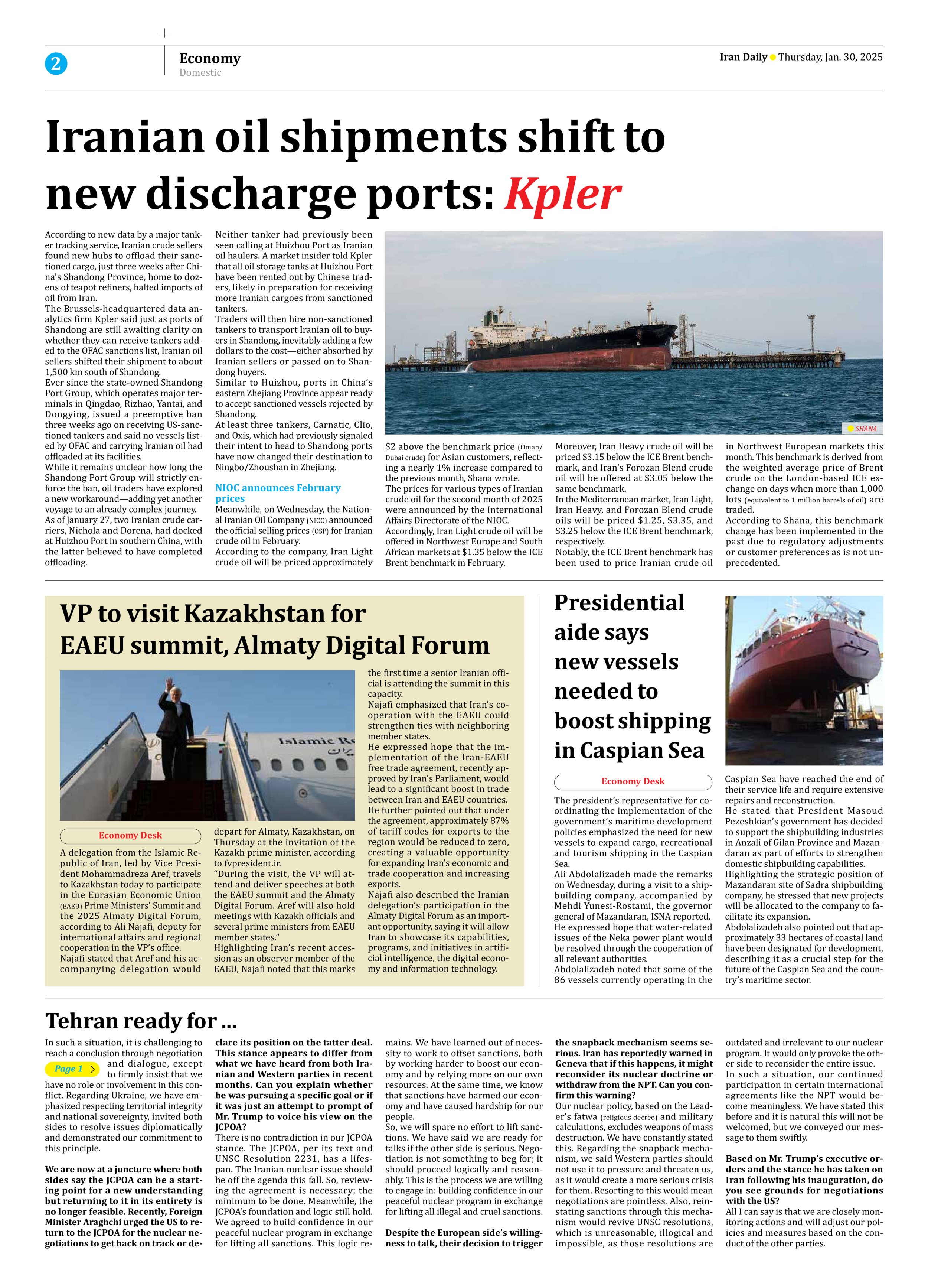
Tehran ready for ...
Page 1
In such a situation, it is challenging to reach a conclusion through negotiation and dialogue, except to firmly insist that we have no role or involvement in this conflict. Regarding Ukraine, we have emphasized respecting territorial integrity and national sovereignty, invited both sides to resolve issues diplomatically and demonstrated our commitment to this principle.
We are now at a juncture where both sides say the JCPOA can be a starting point for a new understanding but returning to it in its entirety is no longer feasible. Recently, Foreign Minister Araghchi urged the US to return to the JCPOA for the nuclear negotiations to get back on track or declare its position on the tatter deal. This stance appears to differ from what we have heard from both Iranian and Western parties in recent months. Can you explain whether he was pursuing a specific goal or if it was just an attempt to prompt of Mr. Trump to voice his view on the JCPOA?
There is no contradiction in our JCPOA stance. The JCPOA, per its text and UNSC Resolution 2231, has a lifespan. The Iranian nuclear issue should be off the agenda this fall. So, reviewing the agreement is necessary; the minimum to be done. Meanwhile, the JCPOA’s foundation and logic still hold. We agreed to build confidence in our peaceful nuclear program in exchange for lifting all sanctions. This logic remains. We have learned out of necessity to work to offset sanctions, both by working harder to boost our economy and by relying more on our own resources. At the same time, we know that sanctions have harmed our economy and have caused hardship for our people.
So, we will spare no effort to lift sanctions. We have said we are ready for talks if the other side is serious. Negotiation is not something to beg for; it should proceed logically and reasonably. This is the process we are willing to engage in: building confidence in our peaceful nuclear program in exchange for lifting all illegal and cruel sanctions.
Despite the European side’s willingness to talk, their decision to trigger the snapback mechanism seems serious. Iran has reportedly warned in Geneva that if this happens, it might reconsider its nuclear doctrine or withdraw from the NPT. Can you confirm this warning?
Our nuclear policy, based on the Leader’s fatwa (religious decree) and military calculations, excludes weapons of mass destruction. We have constantly stated this. Regarding the snapback mechanism, we said Western parties should not use it to pressure and threaten us, as it would create a more serious crisis for them. Resorting to this would mean negotiations are pointless. Also, reinstating sanctions through this mechanism would revive UNSC resolutions, which is unreasonable, illogical and impossible, as those resolutions are outdated and irrelevant to our nuclear program. It would only provoke the other side to reconsider the entire issue.
In such a situation, our continued participation in certain international agreements like the NPT would become meaningless. We have stated this before and it is natural this will not be welcomed, but we conveyed our message to them swiftly.
Based on Mr. Trump’s executive orders and the stance he has taken on Iran following his inauguration, do you see grounds for negotiations with the US?
All I can say is that we are closely monitoring actions and will adjust our policies and measures based on the conduct of the other parties.







